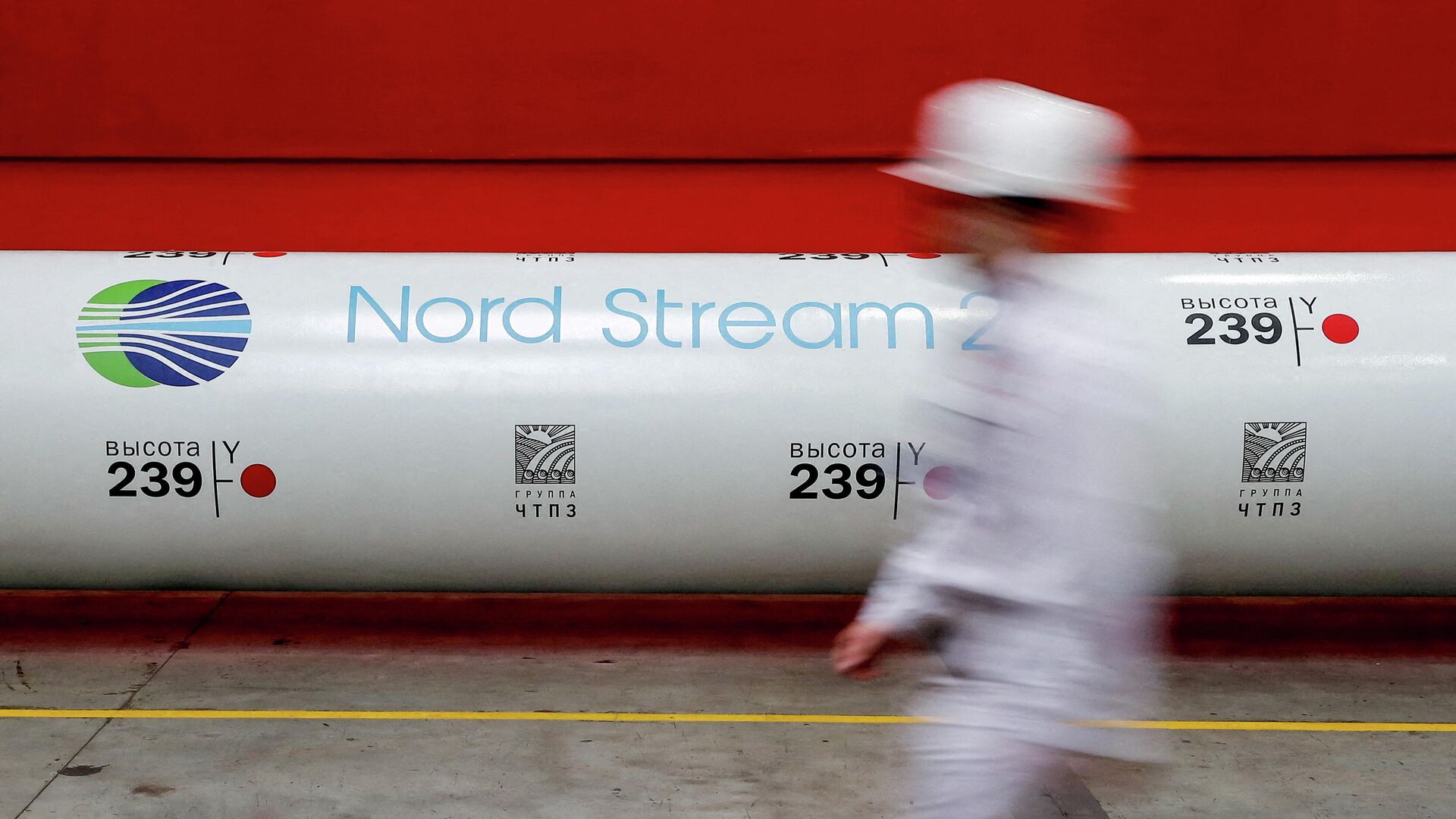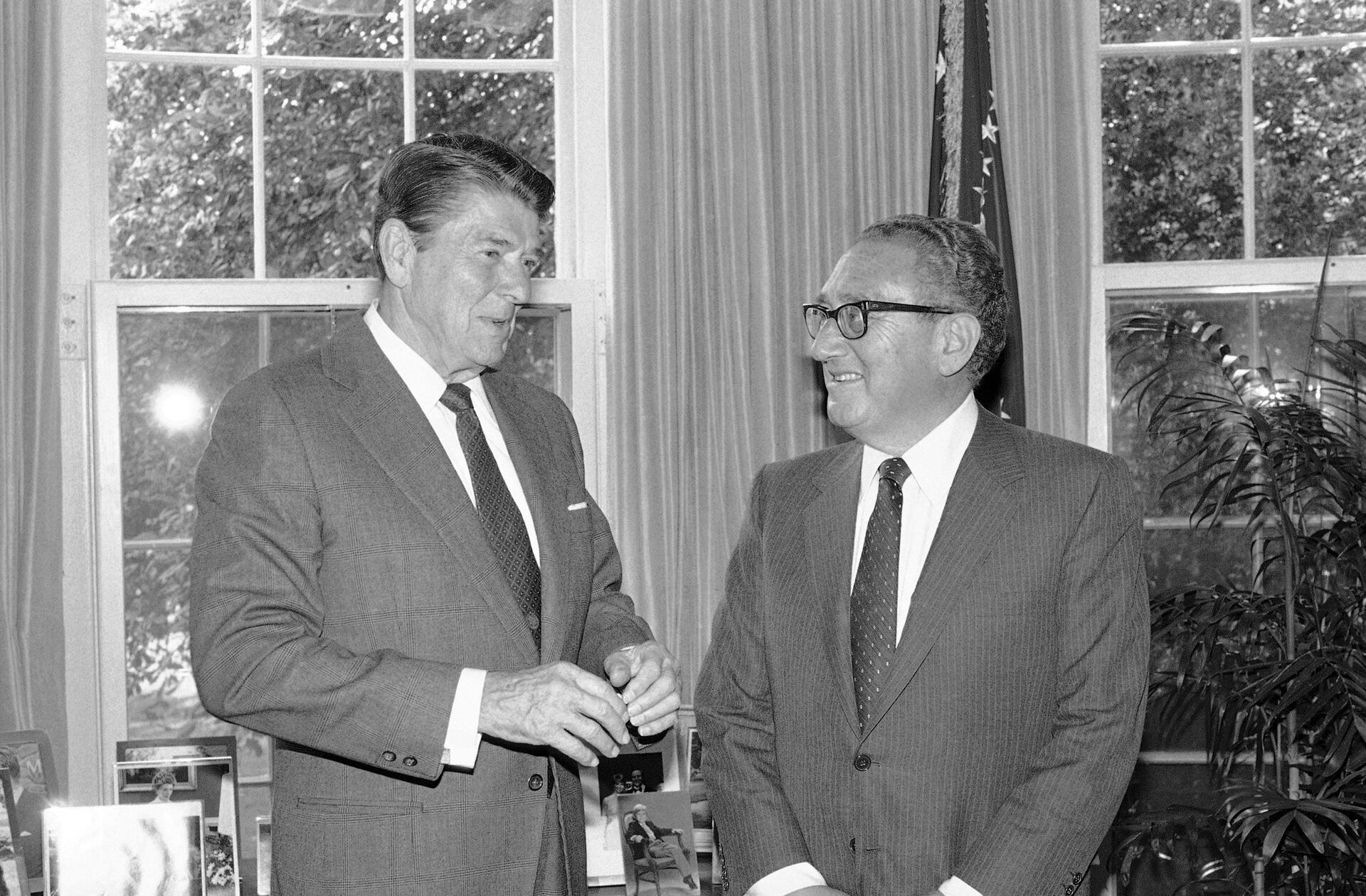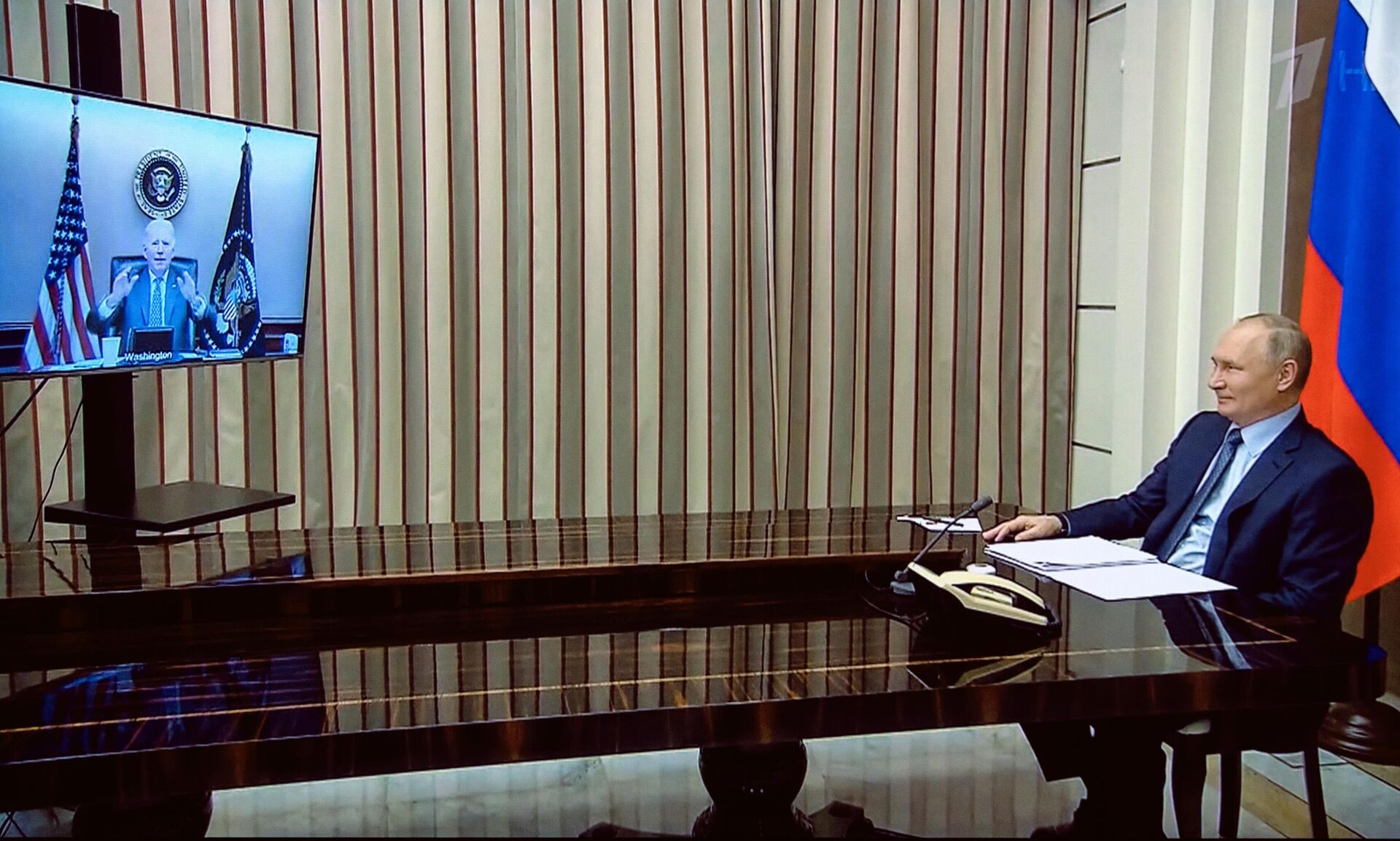Biden-Scholz Talks: Energy Expert Explains Why Germany Will Never Join US in Ending Nord Stream 2
18:47 GMT 08.02.2022 (Updated: 11:44 GMT 09.02.2023)

© REUTERS / Maxim Shemetov
Subscribe
US President Joe Biden pledged to nix Nord Stream 2 if Russia invades Ukraine during his Monday meeting with German Chancellor Olaf Scholz, who said that Washington and Berlin are aligned in their positions, but didn't cite suspending the pipeline as a probable measure. Moscow has repeatedly shredded the invasion scenario as groundless.
"Nord Stream 2 is a reality and sooner or later will be getting certification from the German and EU energy regulators", says Dr Mamdouh G. Salameh, international oil economist and visiting professor of energy economics at ESCP Europe Business School, London. "It is first and foremost a viable economic project. If it was certified in last September, it would have helped alleviate Europe’s ongoing energy crisis".
The Nord Stream 2 gas pipeline runs under the Baltic Sea from western Russia to north-eastern Germany. It is designed to deliver 55 billion cubic metres (bcm) of natural gas per year to Europe, thus doubling the original Nord Stream capacity to a total of 110 bcm.
Biden and his advisers have long been looking for an excuse to continue their opposition to the pipeline under the false pretext that it will tighten Russia’s grip on Europe’s energy security, according to Salameh. He notes that the ongoing political fuss around Ukraine is just a pretext to try to axe the project. However, the overwhelming majority of Europeans and the whole world know that Washington's motivation is to sell US liquefied natural gas (LNG) to Europe, which is more expensive than pipeline gas, according to the professor.

US President Ronald Reagan talks with former Secretary of State Henry Kissinger in the Oval Office of the White House, Tuesday, Sept. 25, 1984 in Washington.
© AP Photo / Barry Thumma
The United States has a long and failed history of opposing Soviet and now Russian oil and gas pipelines dating back to the 1960s. The Reagan administration in the 1980s tried to halt the USSR's West Siberian pipeline (“Brotherhood”) aimed at transporting Soviet natural gas to Central and Western Europe through Ukraine. In December 1981, the Reagan administration introduced sanctions preventing US companies from exporting oil and gas technologies to the Soviet Union. In June 1982, these sanctions were expanded to Europe. However, West Germany, France, and the UK opposed Washington's initiative, forcing the White House to lift sanctions against European and American companies participating in the project in November 1982.
Salameh forecasts that Germany and the EU might exclude any sanctions on Russian energy supplies or Nord Stream 2 so as to avoid a complete halt of Russian gas supplies.
"Were the United States to try to end Nord Stream 2 and exert pressure on Germany and Europe to follow suit, Germany will never oblige and will lead fierce opposition inside the EU against such action", says the economist. "This will seriously harm transatlantic unity and damage US relations with Germany".
Three Reasons Why Berlin Won't Abandon Nord Stream 2
Germany has good reasons to withstand Washington's pressure to halt Nord Stream 2, according to Salameh. Firstly, Nord Stream 2 cost €9.5 billion ($10.6 billion) to build, with roughly half of this sum being financed by a European consortium of companies including OMV (Austria), Wintershall Dea (Germany), Engie (France), Uniper (Germany), and Shell (UK). The energy expert explains that if Berlin nixes the project, it will deal a substantial blow to European energy giants and will sink over 150 major German companies which were involved in the construction of the pipeline.
Secondly, if Berlin stops the project it will be a major loser in economic and energy terms, according to Salameh: "Germany depends on Russia for 60% of its natural gas and oil needs", he stresses.
Thirdly, Europe’s energy crisis and shortages of natural gas and LNG supplies is likely to continue throughout 2022 and probably far beyond with gas and LNG prices remaining high. However, the entirety of LNG exports from the United States, Qatar, and Australia could hardly replace the almost 200 billion cubic metres per annum (bcm/y) piped by Russia to the EU in addition to an estimated 15-16 million tons a year (mt/y) of LNG, according to the energy expert. To complicate matters even further, Europe has a limited LNG import capacity. This makes ramp-ups of LNG imports quite useless, particularly if they are needed to replace Russia’s almost 40% share of the European gas market.
"Only Russia can satisfy the EU’s gas demand", says Salameh. "However, Russia isn’t going to ship additional gas supplies to the EU until [the] Nord Stream [2] gas pipeline is certified. The energy balance of power between the EU and Russia has shifted decisively in favour of Russia. By increasing its gas exports to China, Russia is telling the EU that it isn’t dependent on the European gas market for its gas exports. It has a far bigger market in China".

Russian President Vladimir Putin holds talks with US President Joe Biden via a video link
© Sputnik / Sergey Guneev
/ Russia's Draft Security Proposals are Key to Solving the Crisis
The only way to cool tensions over Ukraine is to address Russia’s security concerns, according to Salameh. Russia submitted draft security agreements to US policymakers in mid-December 2021. Moscow's proposals include legally binding guarantees of NATO's non-expansion, non-deployment of offensive weapon systems near the Russian border, and the return of the bloc’s European capabilities and infrastructure to the 1997 level.
The European security crisis stems from the West's decision to break its NATO non-enlargement pledge to Soviet leader Mikhail Gorbachev and other Soviet officials, the energy expert stresses.
"The United States took advantage of a weakened Russia under President Yeltsin and reneged on that promise exactly as former President Trump reneged on Iran’s nuclear deal", Salameh says. "In other words, the United States’ word is worth nothing".
The academic says that the US-NATO military build-up in Ukraine resembles nothing short of US President John F. Kennedy's Cuban Missile Crisis, which erupted after the Kennedy administration authorised the deployment intermediate-range Jupiter nuclear missiles in Italy and Turkey.
"Now the United States is trying to bring Ukraine into NATO thus being able to station nuclear missiles targeting Russia", Salameh notes. "How would the United States react if Putin’s Russia decided to place nuclear missiles in Venezuela or Cuba?"

